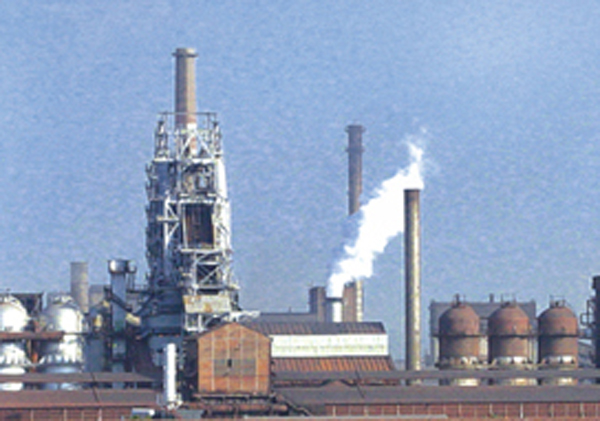
Record high CO2 emissions delay global peak, finds study
Washington, Nov 13 (IBNS): Global carbon emissions are on the rise again in 2017 after three years of little-to-no growth, according to researchers at the University of East Anglia and the Global Carbon Project.
It was previously hoped that emissions might soon reach their peak after three stable years, so the new projection for 2017 is an unwelcome message for policy makers and delegates at the UN Climate Change Conference (COP 23) in Bonn this week.
The research, published today simultaneously in the journals Nature Climate Change, Earth System Science Data Discussions and Environmental Research Letters, reveals that global emissions from all human activities will reach 41 billion tonnes in 2017, following a projected 2% rise in burning fossil fuels.
The figures point to China as the main cause of the renewed growth in fossil emissions – with a projected growth of 3.5%.
CO2 emissions are expected to decline by 0.4% in the US and 0.2% in the EU, smaller declines than during the previous decade.
Increases in coal use in China and the US are expected this year, reversing their decreases since 2013.
Lead researcher Prof Corinne Le Quéré, director of the Tyndall Centre for Climate Change Research at UEA, said: “Global CO2 emissions appear to be going up strongly once again after a three year stable period. This is very disappointing.
“With global CO2 emissions from human activities estimated at 41 billion tonnes for 2017, time is running out on our ability to keep warming well below 2ºC let alone 1.5ºC.
“This year we have seen how climate change can amplify the impacts of hurricanes with more intense rainfall, higher sea levels and warmer ocean conditions favouring more powerful storms. This is a window into the future. We need to reach a peak in global emissions in the next few years and drive emissions down rapidly afterwards to address climate change and limit its impacts.”
Dr Glen Peters of the CICERO Center for International Climate Research in Oslo who led one of the studies said: “The return to growth in global emissions in 2017 is largely due to growth in Chinese emissions, projected to grow by 3.5% in 2017 after two years with declining emissions. The use of coal, the main fuel source in China, may rise by 3% due to stronger growth in industrial production and lower hydro-power generation due to less rainfall.”
“The growth in 2017 emissions is unwelcome news, but it is too early to say whether it is a one-off event on a way to a global peak in emissions, or the start of a new period with upward pressure on global emissions growth.”
The team flags that persistent uncertainties exist in our ability to estimate recent changes in emissions, particularly when there are unexpected changes as in the last few years.
“Even though we may detect a change in emission trend early, it may take as much as 10 years to confidently and independently verify a sustained change in emissions using measurements of atmospheric concentrations of carbon dioxide,” said Dr Peters.
“Policy makers in Bonn are preparing for the Global Stocktake under the Paris Agreement, that will start in 2018 and occur every five years, and this puts immense pressure on the scientific community to develop methods and perform measurements that can truly verify changes in emissions within this five-yearly cycle,” said Prof Le Quéré.
Support Our Journalism
We cannot do without you.. your contribution supports unbiased journalism
IBNS is not driven by any ism- not wokeism, not racism, not skewed secularism, not hyper right-wing or left liberal ideals, nor by any hardline religious beliefs or hyper nationalism. We want to serve you good old objective news, as they are. We do not judge or preach. We let people decide for themselves. We only try to present factual and well-sourced news.







